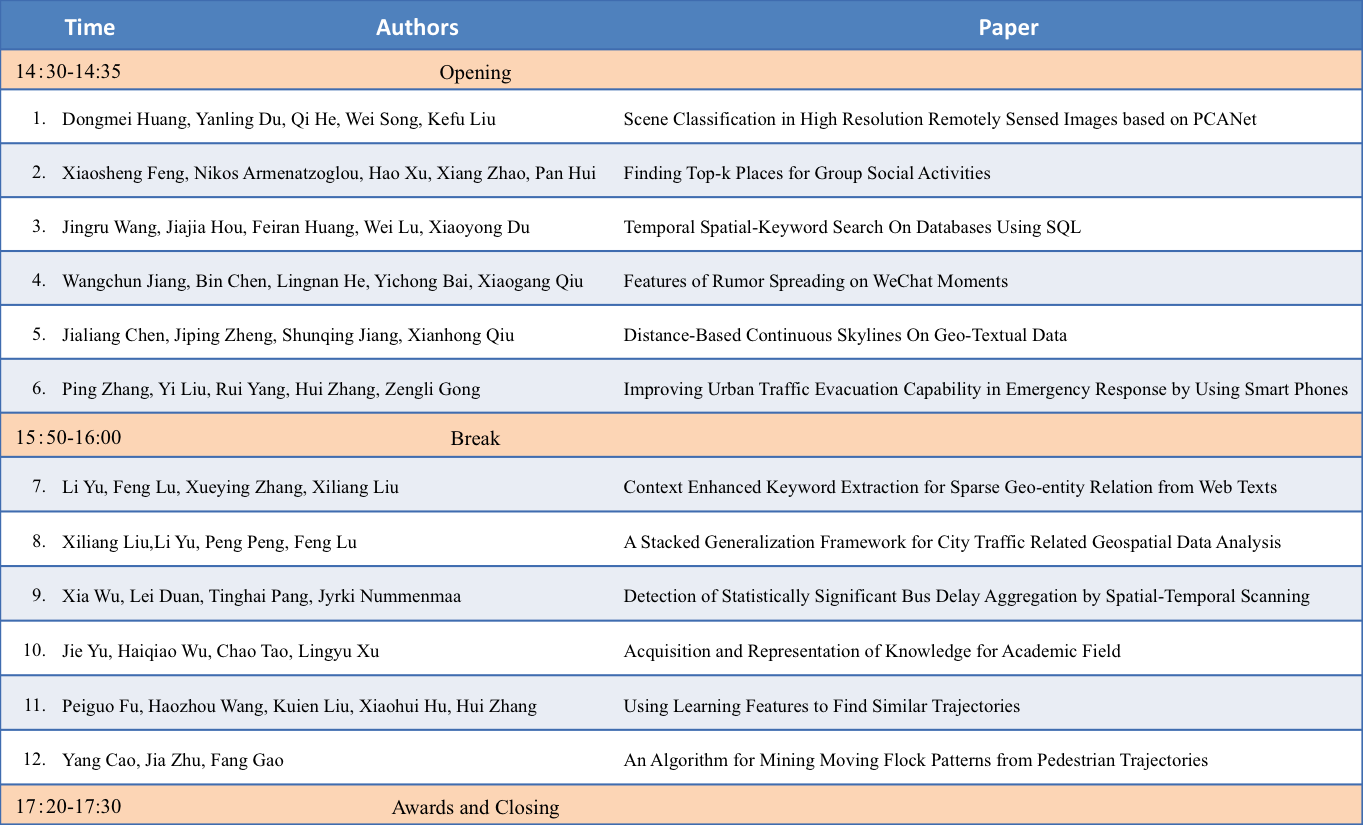In conjunction with APWeb 2016, the 18th Asia Pacific Web Conference (APWeb 2016)
Aim and scope
Smart phones are necessary for people who are living in the modern world. It has many built-in new features can allow people to surf on the Internet,
use digital map for navigation or make an order online directly on the smart phone. Such user behaviors contain the rich of spatial
(e.g. web objects with geo-tags) and trajectory (e.g. GPS trace of vehicles and human beings) information and can be extracted anonymously.
It is easy to see these data has amount of business values and can play important roles in many critical areas such as traffic monitoring,
urban planning and event detecting.
Since the volume of spatial and trajectory data is increasing rapidly,
it requires emerging algorithms and applications to analysis such data. Moreover, the spatial and trajectory data analyzing
has attracted a lot of attends in both academic field and industry field.
This workshop on aims to solve challenge problem and
contribute to spatial and trajectory data management and analysis.
Program

Note: Each paper has 10 minutes for presentation plus 2 minutes for QA
Topics and interest
Topics include, but not limited to:
- Big Spatial/temporal/spatio-temporal Data
- Trajectory Data Analysis
- Trajectory Data Management
- Spatial Data Analysis
- Trajectory Query Processing and Indexing
- Trajectory Data Mining
- Urban Computing
- Spatial/temporalspatio-temporal Database Management
- Spatial/temporal/spatio-temporal Query Processing and Indexing
- Computational Geometry
- Crowdsourcing Spatial Data
- Data Warehousing and Decision Support
- Experiments, Benchmarks and Performance Evaluation
- Geographic Information Retrieval
- Keyword Search in Spatio-temporal Databases
- Indoor Space Data Management
- Moving Objects Database
- Parallel and Distributed Spatio-temporal Databases
- Real Applications and Systems
- Recommendation Systems
- Spatial (Road) Networks
- Sensor Networks
- Spatial Data Streams
- Uncertain, Imprecise and Probabilistic Data
Submission guidelines
Authors are invited to submit electronically original, English-language research contributions not concurrently submitted elsewhere.
Accepted papers will be published by Springer as proceedings in Lecture Notes in Computer Science (LNCS).
The style files are available from Springer LNCS site . All submitted papers should be Springer LNCS camera-ready PDF format.
Authors are advised to interpret these
limitations strictly and to contact the PC chairs in case of
doubt. Each accepted paper must be accompanied by at least one
full registration, and an author is expected to present the
paper at the conference, otherwise, the paper will be removed
from the proceedings and the LNCS digital library.
The maximal lengths of pages for different tracks should not exceed following numbers:
- Research paper: 12 pages
- Poster paper: 4 pages
All papers must be submitted to the following email: kliu [at] pivotal.io
A few selected papers will be recommended to the IEEE ACCESS Journal (SCI Indexed) and Wireless Personal Communications (SCI Indexed) with reasonable extensions.
Contacts
Kuien Liu (PC Chair) <kliu [at] pivotal.io>
Wei Chen (Local Organiser) <wchzhg [at] gmail.com>
